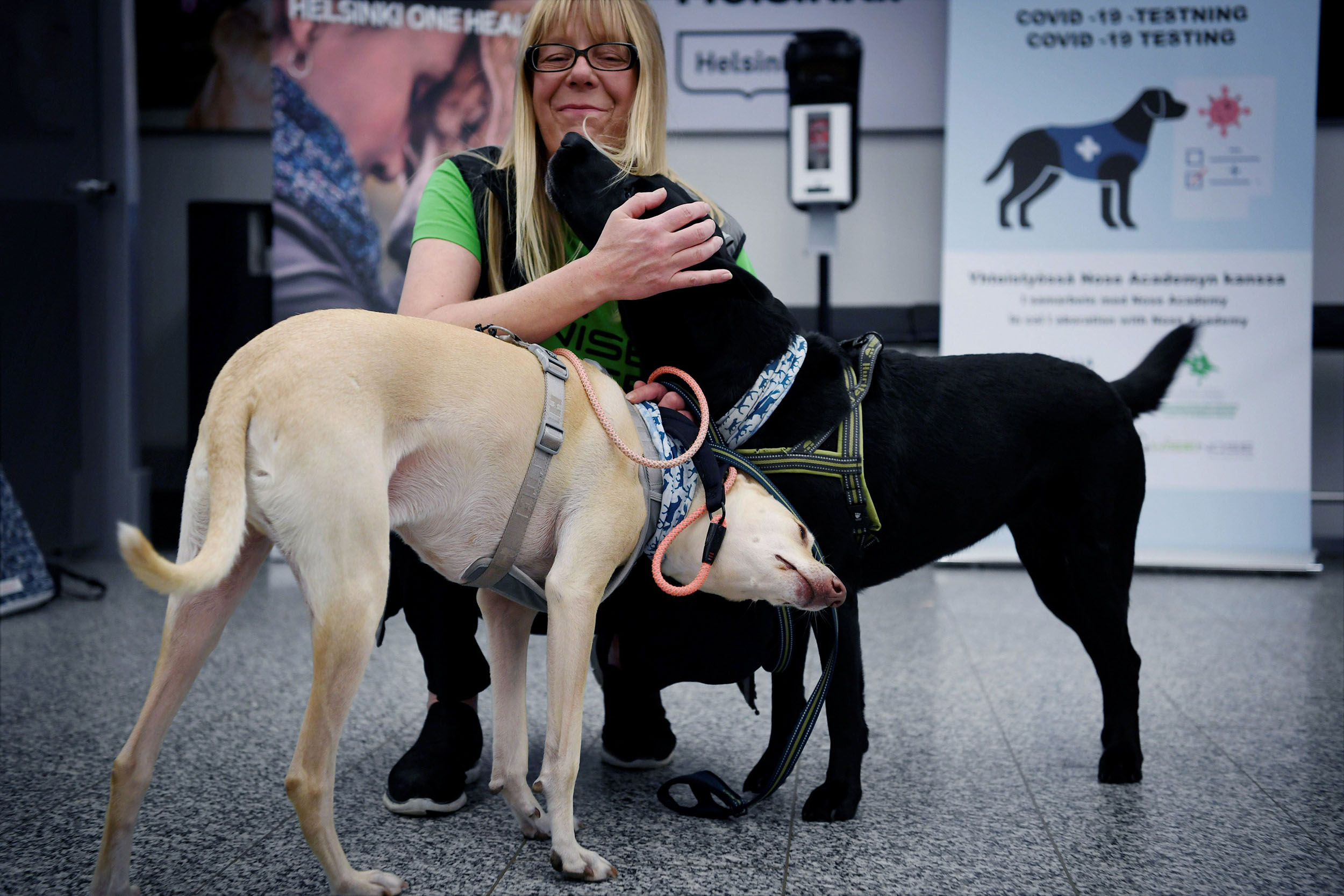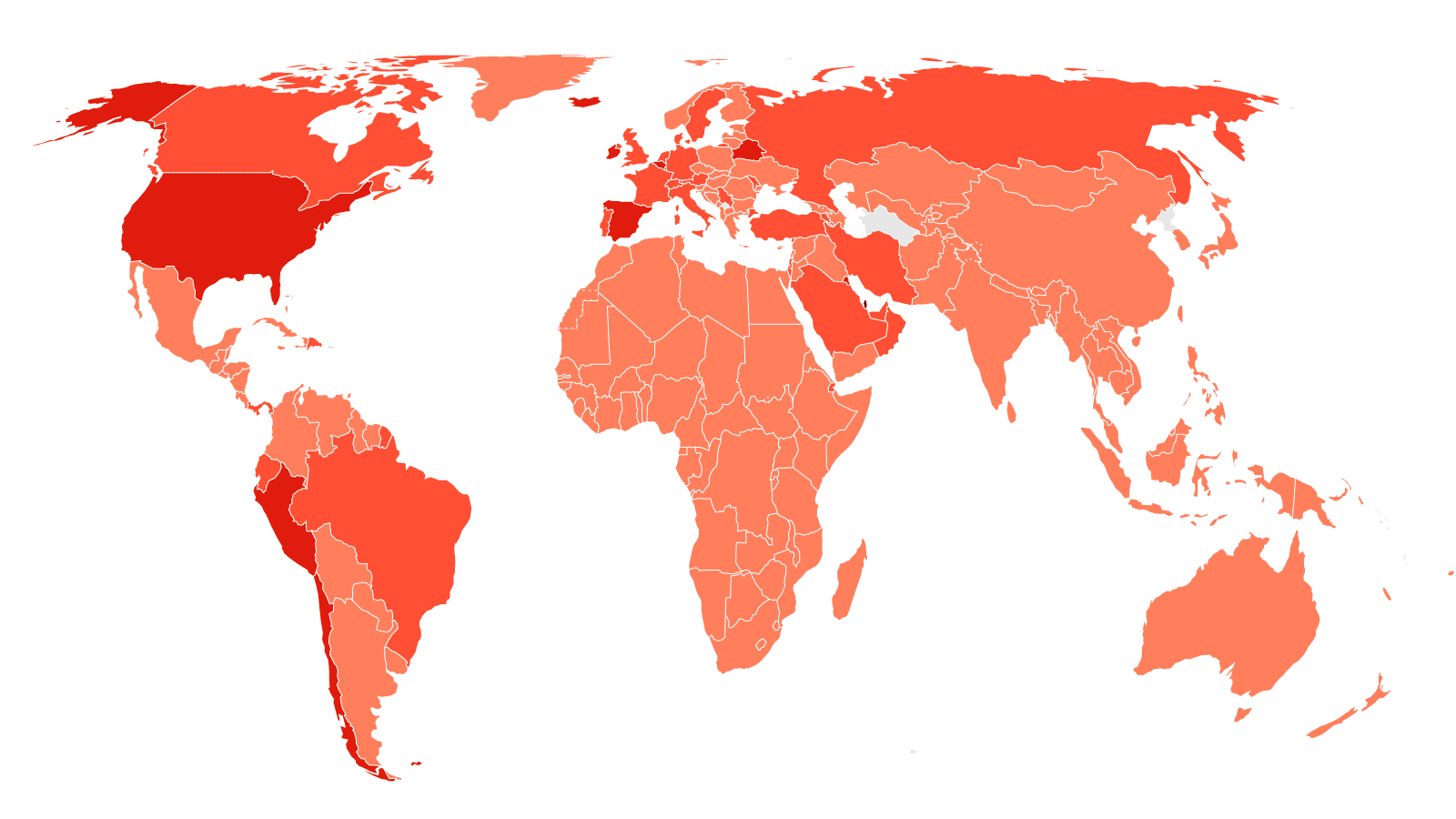
A group of sniffer dogs trained to detect Covid-19 have begun working at Helsinki Airport in Finland in an effort to identify those who have contracted the virus.
“We are among the pioneers. As far as we know no other airport has attempted to use canine scent detection on such a large scale against Covid-19,” airport director Ulla Lettijeff said in a statement. “This might be an additional step forward on the way to beating Covid-19.”
Finnish start-up Wise Nose has trained a total of 10 dogs, which will work in shifts of four to sniff out coronavirus.
The process involves those being tested swiping their skin with a test wipe and dropping it into a cup, which is then given to the dog that sniffs it. The dog and its handler are held in a separate booth during the test. If the test result is positive, the individual will be directed to a health information point inside the airport.
All of the tests are processed anonymously, Helsinki Airport said.
The dogs can smell the virus with almost 100% certainty and can identify the virus days before the symptoms have started, the airport said, citing preliminary tests conducted by a research group at the Veterinary Faculty of the University of Helsinki.
"We have solid experience in training disease related scent detection dogs. It was fantastic to see how fast the dogs took to the new smell," said Anna Hielm-Björkman, a University of Helsinki clinical instructor leading the research group.

